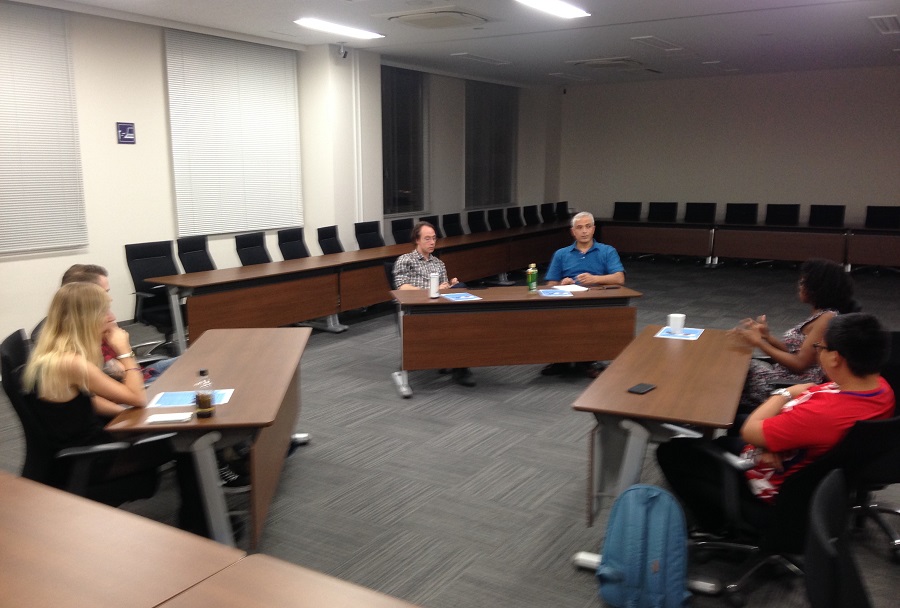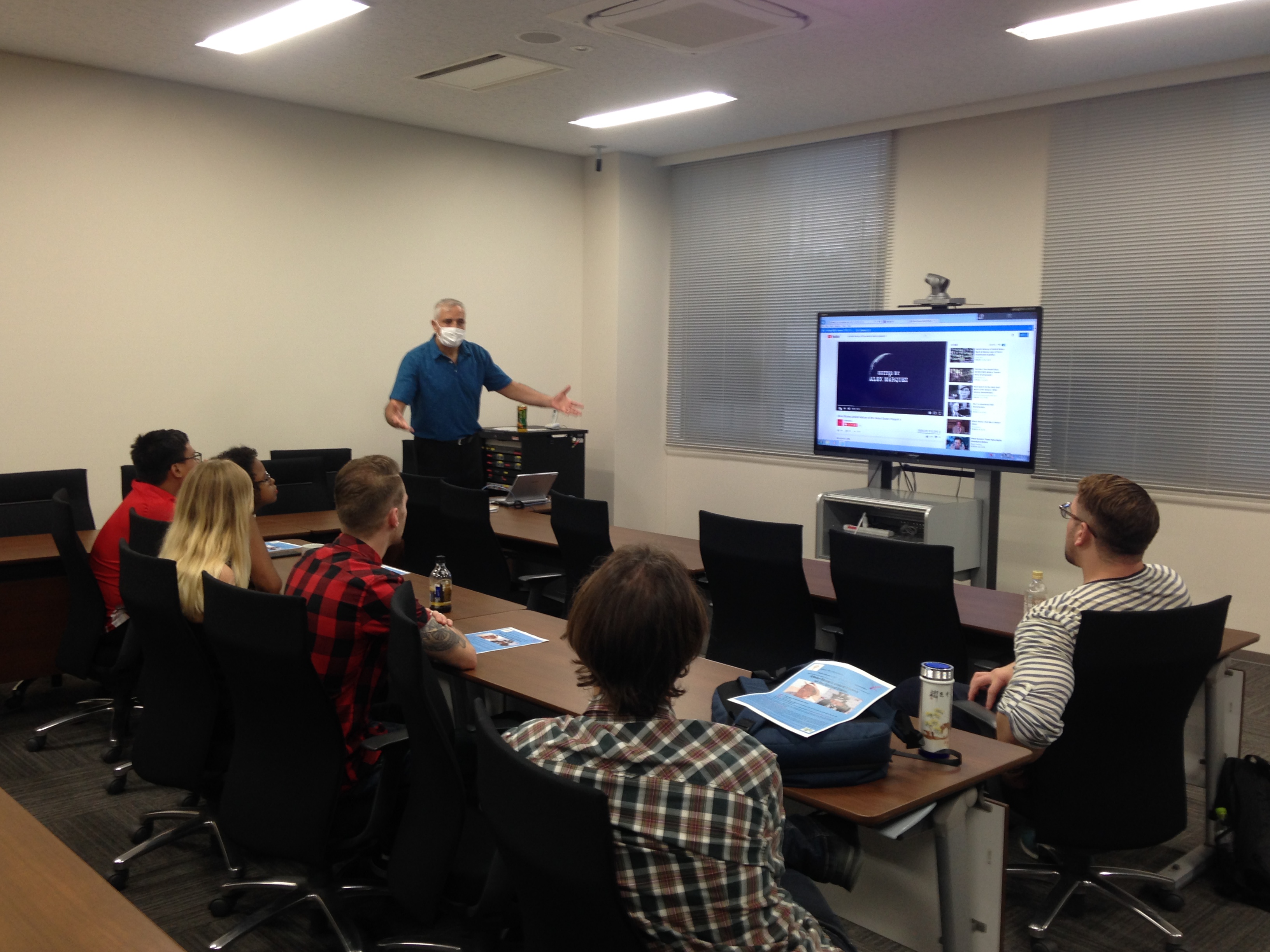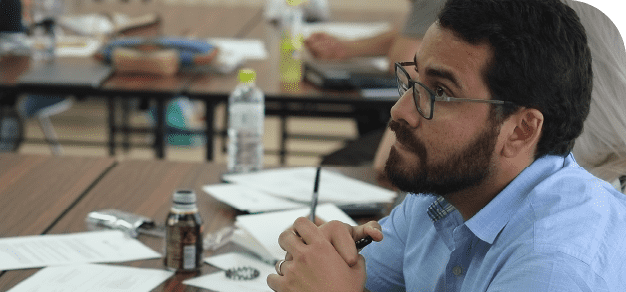Recent Activities
GRM Monthly Documentary Film Event - September
2018/10/22
A documentary film event was held on Thursday, 27 September.
We watched a film, titled
“Oliver Stone’s Untold History of the United States”.
----------------------------
Date: Thursday, 27 September 2018
Time: 17:30 P.M. - 19:30 P.M.
Venue: Meeting Room, Shikokan Building (1F), Karasuma Campus
Doshisha University
----------------------------
Written by Iyas Salim, PhD
Advanced Research and Education, Doshisha University
This documentary is the first of a series of films directed by world-renowned film director Oliver Stone. We selected the first of Stone’s series documentaries for the month of September in which this episode explores the history surrounding the epochal events of World War One (WWI). Perhaps, many of us are more familiar with studying the history of WWI from European and Middle Eastern perspectives. Certainly most of the battles fought the during the great war took place in those parts of the world. What Oliver Stone’s film brings is an informative dimension of America’s role in the war. Stone’s narrative is rather interesting as he digs into the history surrounding the American political culture on the question of whether to involve the U.S into WWI. Debate in America intensified around the beginning of the 20th century on the role of the U.S at the stage of conflicting global interests. American political leaders and intellectuals argued among themselves about how to envision the future U.S.A in the 20th Century. One side urged America had to spread out its influence outside national borders. In clearer terms, the U.S. was to pursue an empire. Justification was founded on the claim of “Manifest Destiny,” which propelled and encouraged imperial expansion, wars and influence at global scale. On the other hand, anti-empire sentiment expressed the objection to the notion of empire. The anti-imperial camp thought the pursue of an empire meant bringing disasters to the America and the world at large. President Woodrow Wilson, who presided over America during WWI, declared his famous position on the principle of “Self Determination.” But, later on, after the end of the war, President Wilson doctrine of Self Determination gave away to European appetite for further colonization and “mandates.”
As the war was raging in 1917, Russia had a revolution in October of that year. The communist Bolsheviks took over power from the Tsar. Russia, consequently, abandoned its imperial ambitions set out from the beginning of WWI. The Bolsheviks revealed to the entire world a major secret known as the Sykes-Picot Agreement which detailed dividing the Middle East between Britain and France when the war ended. Revealing the secret agreement at the time can be compared to WikiLeaks of 2013. The counter revolution fought back in Russia and the Russian civil war continued to rage on from 1918 to 1923. However, the Sykes-Picot agreement was implemented after the end of the war in 1918. Britain and France divided the Arab region into different nation states. Britain was allowed to established a “Mandate” in Palestine. Mandate meant in actual reality colonization. The British mandate of Palestine paved and facilitated the way to the eventual establishment of the State of Israel based on the ideology of Zionism. The nation-state system was firmly forced upon different regions of the Arab World by France and Britain. All of the sudden, and for the first time in the history of the region, people, who share the same language, history, religious heritage, tradition and culture, found themselves forced into artificial territorial borders of newly named and established “nation-states.” Despite the promise of Britain to grant the Sharif Hussein of Mecca a “unified Arab kingdom” ruling over Syria, Palestine, Iraq and Arabian Peninsula, during WWI, Britain broke its promises after the end of the war. What remains in effect was the Sykes-Picot agreement, despised by the inhabitants of the newly formed and configured Middle East. The region is still living the consequences till this moment.
We are living at the moment the hundred’s anniversary of the end of WWI and the resultant consequences of the that war. The political arrangement/disarrangement at the end of the WWI helped to facilitate the rise of fascism in Europe, leading to WWII and many human tragedies. The Palestine question is still unresolved till this moment where Palestinian refugees who were forcibly displaced from their villages and cities remain not permitted to return back to their homes and lands. The borders of Sykes-Picot are becoming symbols of limitations to the people’s movement and activities. The system of nation-state brought broken promises and ultimately failed states in a number of countries in the region.
The free choice of people is the only hope. That also applies to the people of Middle East. The international community must hear the voice of the people of this sensitive and important part of the world and to recognize their aspiration and the kind of future people aim for. That is especially so for the Palestinians who remain living under illegal military occupation and colonization for many continuing decades. The present world appears to be living the remnants of 19th - century mind set despite the rapid influence and change of globalization and technology. Nation-state system is undergoing serious strain. In the meanwhile, world politics is not offering viable alternatives. Evidently, it looks as if the world is running out of choices. The result is a global-scale reactionary wave of populism, xenophobic politics, nativism and tribal politics dominating the scene. Even within the nation-state itself, politics based on regionalism with racist ideologies is increasing day by day. The aim of history is to learn lessons from the past. And WWI has many lessons to teach us at this point of time of the 21st Century. No matter what world order is set to be established in the near or distant future, every woman, man, child, elderly, etc., does aspire and deserve to live in dignity, freedom and in a society of justice and fairness.







